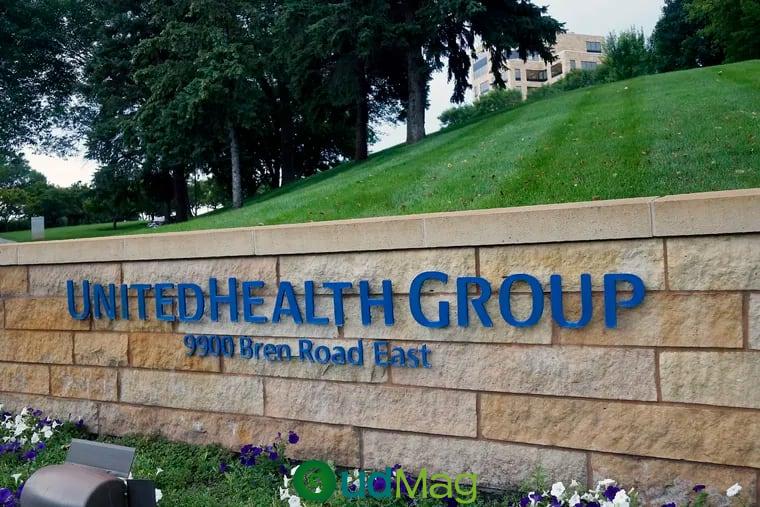A cyberattack last month on Change Healthcare, the nation’s largest health insurance claims and payment processor, continues to cause disruption for some Philadelphia-area doctors’ offices.
A primary care practice in Exton resorted to FedEx this week to submit $60,000 worth of claims to Medicare through paper invoices. Owner Christine Meyer said Thursday her practice has not been paid in three weeks. It relied entirely on Change Healthcare for claims submission.
“We’re doing this huge hodge-podge of stuff to start getting our claims out there, but they’re all so slow,” said Meyer, who was ready to take out a home-equity loan to pay her 80-plus employees. Her payroll is $170,000 every other week — if she doesn’t pay herself, which she says she won’t do for a long time.
Aledade, a company Meyer works with on a Medicare savings program, saved her from needing the home-equity loan. It pledged to advance practices like hers a portion of the bonuses they are due to receive in October.
The cyberattack caused Change, which is based in Nashville, Tenn., to take its system off-line on Feb. 21. Change said Thursday it expects payment processing to be restored on March 15 and claims processing to return on March 18.
Change Healthcare’s reach
Both insurers and health care providers large and small rely on Change Healthcare for critical aspects of health care transactions, such as determining eligibility for care, insurance authorizations prior to procedures, and submitting and paying claims.
The company processes 15 billion health care transactions annually and touches 1 in every 3 patient records, according to a Feb. 26 letter from the American Hospital Association to Xavier Becerra, secretary of the U.S. Department of Health and Human Services.
Independence Health Group, the largest health insurer in the Philadelphia region, has seen the impact.
While IBX’s cybersecurity did not suffer because of the attack on Change, numerous aspects of its operations did, according to an emailed statement from Michael R. Vennera, IBX’s chief strategy, corporate development, and information officer.
About 20% of providers in IBX’s network of health care providers use Change to submit claims for patient care. “We have shared alternative ways for providers to submit claims, such as using our provider portal, mail, or through another vendor,” the statement said.
The Change outage also hit several IBX vendors involved in sending mail to customers and helping them to determine their insurance benefits.
Insurance regulator pushes for aid
The Pennsylvania Insurance Department urged health insurers to help medical practices that are reeling from the Change Healthcare outage, which started Feb. 21.
“This attack has had a profound impact on the health care ecosystem, with impacts ranging from provider access to prior authorization processes to day-to-day reimbursements,” Insurance Commissioner Mike Humphreys said Thursday in a news release.
Insurers can help “bridge hopefully short-term cash challenges” by providing financial assistance and increase the amount of flexibility in their electronic systems, Humphreys said.
Critics have said needs are not being met by loans offered by Change’s owner, Optum. Optum’s owner is UnitedHealth Group, which also owns the nation’s largest health insurer.
The short-term nature of the loans is also a problem for doctors, said an official for the Pennsylvania Medical Society, a trade group for doctors in Mechanicsburg. Doctors would have to repay the loans within 10 days after Change says services are back to normal.
Smaller impact on large health systems
Large hospital systems tend to use more than one company to process medical claims, making it possible them to shift business away from Change after it shut down, thus limiting the impact, Standard & Poor’s Global Ratings said in a new report about the financial uncertainty caused by the cyberattack.
The University of Pennsylvania Health System said some retail pharmacy, revenue collection, and billing processes were disrupted by the Change Healthcare outage, but the nonprofit health system was able to switch to alternative processes to restore services.
During a quarterly presentation to municipal bond investors on Tuesday, Temple University Health System shared some details about the outage’s relatively small impact on its operations.
The North Philadelphia nonprofit did not experience a drop in cash until the last week of February, Temple Health’s chief financial officer Gerald Oetzel told investors. The affected revenue amounted to about $6 million, he said. The organization had $835 million in cash on Dec. 31.
Temple was able to switch to other vendors to collect payments from some insurers and expected to be caught up this week.

